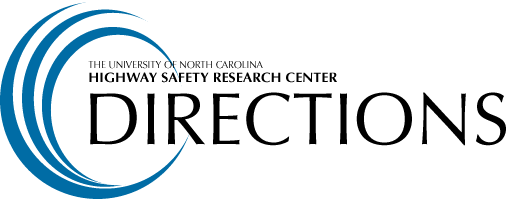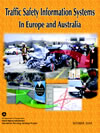

Traffic Safety Information Systems in Europe and Australia
Safety data is a key to making sound decisions on the design and operation of roadways, but recent assessments show that the quality of many states' crash databases is eroding due to resource reductions. Highway Safety Research Center Deputy Director David Harkey participated in a U.S. delegation that traveled abroad to investigate this very issue.
The Federal Highway Administration (FHWA) and the American Association of State Highway and Transportation Officials (AASHTO) National Cooperative Highway Research Program cosponsored an 11-member panel that conducted a scanning study of how agencies in the Netherlands, Germany and Australia develop and use traffic safety information systems.
The team conducted meetings with representatives of government agencies, academia and private organizations to discuss:
- General issues of policy, systems and linkages
- Crash data collection and accessibility of routine and special traffic crash data
- Roadway data collection and the accessibility of data
- Additional traffic safety issues concerning driver information systems, enforcement, medical data and adjudication
During the trip, the scanning team found that, similar to the U.S., the number of fatalities has dropped significantly since 1980, but the rate has remained essentially constant in recent years. The countries visited have also experienced a drop in crash documentation by law enforcement agencies, but they are developing innovative methods for estimation, linkage and integration to limit the amount of data collection required.
The scanning team's recommendations for U.S. use include advancing safety themes in the areas of strategy, efficiency and utility to develop a more comprehensive approach to improving information systems. The team also recommends conducting a similar scan in the U.S. to determine best practices for collecting and sharing safety data, simplifying data collection by increasing automation and evaluating new technologies to improve data collection and management.
FHWA and AASHTO selected the scanning team members to represent the diversity of knowledge required to evaluate traffic safety information systems. In addition to HSRC, the panel represented the American Association of Motor Vehicle Administrators, National Association of County Engineers, International Association of Chiefs of Police, the National Highway Traffic Safety Administration, FHWA and AASHTO.
Harkey is currently working in conjunction with HSRC Senior Research Scientist Forrest Council to develop a white paper on the implementation strategies recommended by the scanning team and required to improve safety information systems in this country. The paper is expected to be released in the fall of 2005.
The University of North Carolina Highway Safety Research Center
730 Martin Luther King Jr. Blvd, Suite 300 | Campus Box 3430 | Chapel Hill, NC 27599-3430
Phone: 919.962.2203 | Fax: 919.962.8710
http://www.hsrc.unc.edu
